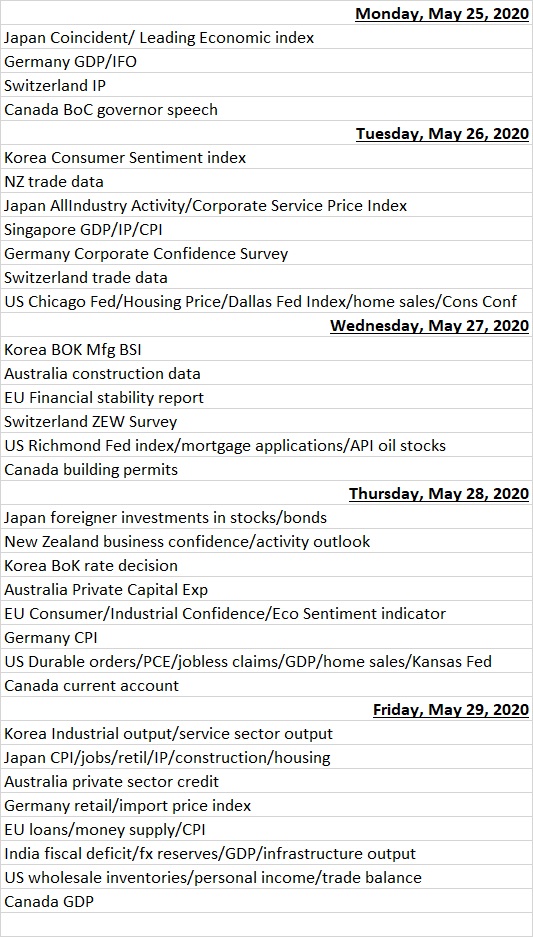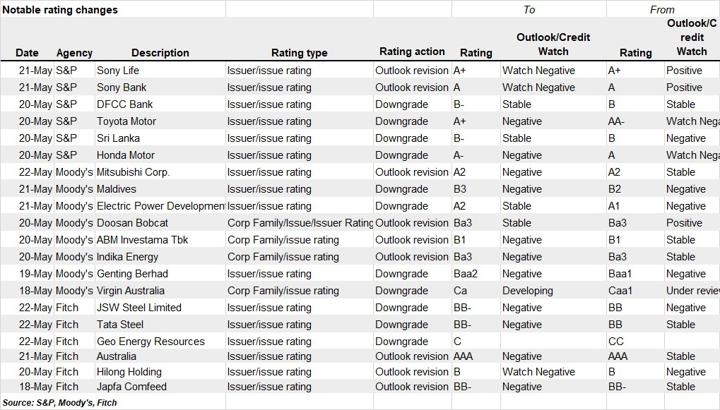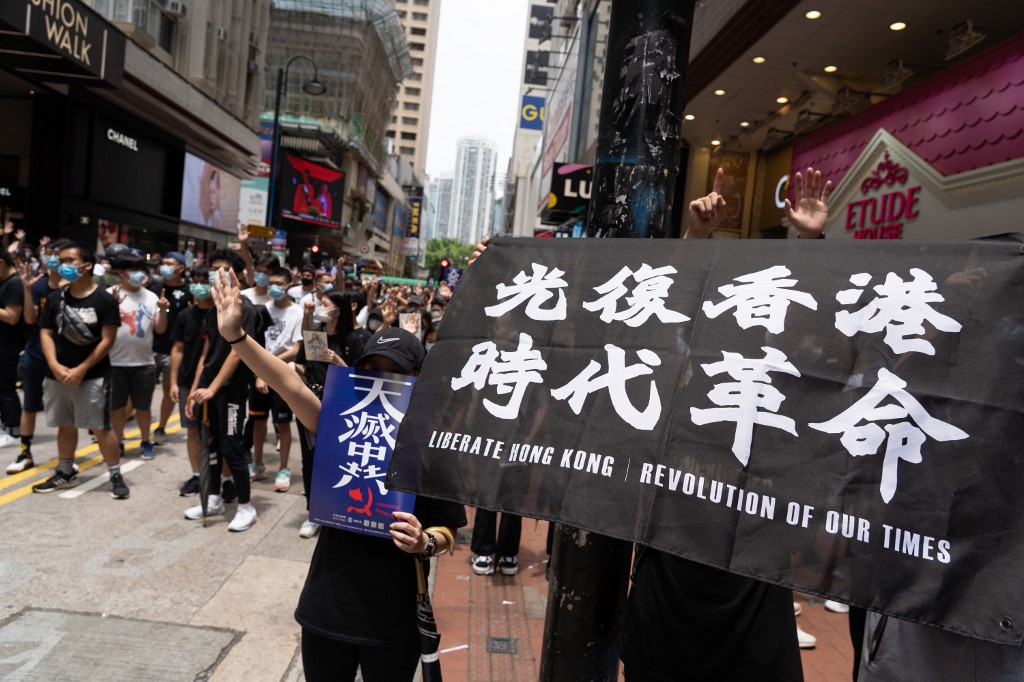Economic events
(ATF) Financial markets are bracing for escalation in tensions between US and China after US President Donald Trump warned Washington would react “very strongly” if Beijing pushed through a law that would give it more control over the former British colony. Still, after these threats China’s Foreign Minister Wang Yi said at the security law for Hong Kong would be imposed without delay following its introduction at Friday’s opening day of China’s national legislative session.
Pro-democracy protests returned to Hong Kong streets on Sunday following Beijing’s decision and these were thwarted by riot police who fired tear gas shells and arrested over 180 people in a city already battling the economic impact from the coronavirus pandemic. More protests are planned during the week.
On Friday, Hong Kong’s stock market reacted by falling 5.56% and China’s credit default swaps underperformed the region. Investors worry about the impact on Hong Kong’s economy from renewed pro-democracy protests and the withdrawal of Hong Kong’s special economic status under US laws.
“That (withdrawal) would add to perceptions that Hong Kong’s loss of autonomy is making it a less attractive place to do business, which could further damage its economy and undermine its role as a financial centre,” Jonas Goltermann of Capital Economics said in a note.
These developments could overshadow the stimulus measures unveiled by Beijing at its annual National People’s Congress which kicked off last week.
“We think the government is fully aware of the increasing risks, including from the enactment of a Hong Kong National Security Law during NPC, as seen from President Xi’s speech on 7 April,” Barclays analysts said in a note. “Top concerns include Sino-US decoupling and renewed trade/tech/financial war, and a global supply-chain reset amid rising anti-globalisation and anti-China sentiment.”
Wang Yi’s warning that the US is pushing Sino-US relations into the so-called “new cold war” will also remind investors about the risk of the trade war reigniting even as Beijing pledged to uphold its commitment under the phase one of the trade deal signed in January.
Fund flows
Investors pulled another $7.5 billion out of Equity Funds, with Emerging Equity Funds experiencing net redemptions for the 14th consecutive week with $46 billion of outflows amid rising Sino-US trade tensions, the unfettered rise in the coronavirus infections and troubled outlook for commodity prices, according to funds data provider EPFR.
“With investors unsettled by rising trade tensions with the US and marking time until the National People’s Congress spells out short-term policy goals and measures, flows to China Equity Funds have faltered since the start of the second quarter,” EPFR said.
In contrast, high-grade and high-yield funds enjoyed a seventh and an eighth straight week of inflows respectively reflecting investor preference for fixed income assets, according to BofA Securities.
“Global EM debt funds flipped back towards outflows as EMs have now become the epicentre of the coronavirus outbreak. Commodity funds recorded an inflow, their eighth weekly inflow in a row, adding 7% of AUM in the last eight weeks,” a report from BofA Securities said.
The fund flows support the thesis that bondholders would seek companies to repair balance sheets and cash-flows ahead of rewarding shareholders, Jefferies & Co analysts said in a note.
“A high-equity market multiple in the absence of earnings should incentivise CEOs to issue equity,” they said while highlighting elevated credit spreads.
“Convertible bonds are ideally placed for this part of the cycle. The unique hybrid features of a CB (Bond & Equity) offer investors equity like returns with low volatility alongside reduced drawdowns. CBs also offer protection from any equity dilution since they are placed higher on the capital structure. The fact that they are not a mainstream asset class and not owned by the central banks works on behalf of equity investors presently.”
Economic data calendar

Last week’s rating changes

























